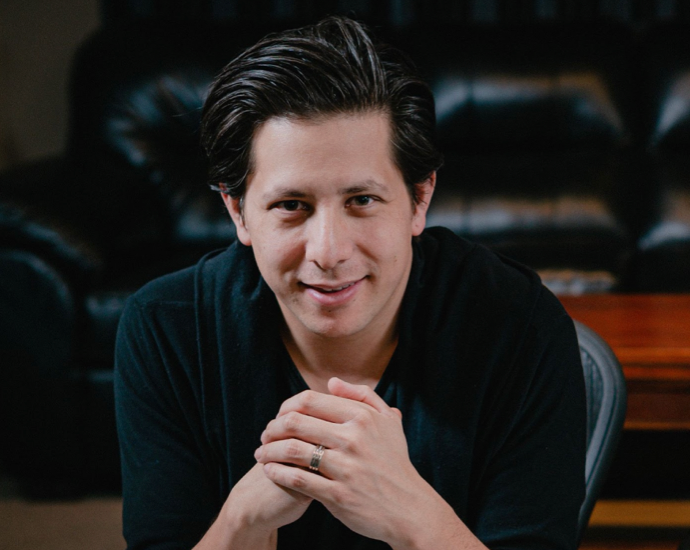Digging into the creative process, Byta speaks with artists, musicians, producers, DJs and anyone involved with music creation. A conversation about how they create, collaborate and share music. From studio setups to routines, and the first person to hear about the next 'big' work.
Where are you based?
Calgary, Alberta, Canada
How, when and where did you start making music? Are you primarily a musician or a producer, or do something else?
Although I played for many years prior, I became a full-time working musician in 2009. I began in music performance as a freelance musician for hire and started moving into music production in 2017. I wouldn’t say either performance or production are my primary focus, as my time is split fairly evenly between the two.
Who would you consider some of your biggest influences when it comes to your “sound”?
When it comes to playing bass guitar, my biggest influences are Jimmie Lee Sloas and Justin Meldal-Johnsen. It’s safe to say a big part of my sound has been inspired by their many unique tricks, nuances, and general styles. Although they are very different, there’s so many things to learn from them (and many others, of course) that challenge me to explore and develop as a player. When it comes to production, my biggest influence is whoever the client is that we are working with at the time. Nothing is more important to me than capturing the essence of each artist, and therefore I try to ensure that their personality, style, preferences, and character are what influence each decision throughout the process.
Explain your creative process? Do you have a routine?
I can honestly say that each day is a little different from the last. It really depends on what’s needed of me from any given client at any given time. In my music-director role it may be writing set lists, creating show transitions and moments, creating medleys, producing live-show tracks, or rehearsing the band. In my music-producer role it may be song writing, pre-pro, tracking, programming, or editing. Again, it all depends on who needs which services at the time.
What is your “studio” setup?
My personal setup is quite minimal, as my own space is used primarily for overdubbing, programming, and editing. Therefore, it’s simply a computer with a UA Apollo, monitors, headphones, and a whole bunch of instruments.
What is your process when working with other people? How is collaboration different in the studio vs working remotely?
As much as I love being in the studio with others, remote collaboration has become increasingly common as well as increasingly effective. Programs such as Audiomovers have made it incredibly easy to create in real time with other musicians and producers remotely, and file sharing platforms such as Byta have made it easy to share material amongst a group of collaborators. I work with a co-producer on nearly all my production projects, so file sharing is something that’s done almost daily while we work collectively to bring a song to life. I’d say that at this point, there’s on small differences between working in-person vs working remotely in terms of efficiency and effectiveness and getting a great end result.
At what point(s) are you comfortable letting other people hear what you are working on?
My preference is to hold off on sharing a work-in-progress with as many people as possible until the work is complete.
Do you share your work in progress (streams or downloads)? Any technical frustrations?
I do not – We generally keep work-in-progress projects fairly under wraps.
What are the advantages of using Byta as part of your workflow compared to other platforms?
The default ability for the receiving party to choose between streaming and downloading media can save valuable time (and hard drive space!) while in the heat of a collaboration.
How do you know when a track/album is finished?
Are they ever, really? 😉
This is a tough one, as in a lot of ways, you could argue that it comes down to a decision that’s made, by all parties involved, based on a lot of subjective metrics. I can’t say there’s a one-size-fits-all answer, unfortunately.
How do you listen to the final mixes/mastered work?
Things are sent to me so that I can reference them on my own system with my own speakers/headphones, which is critical to being able to confidently critique the works.
How important is pre-release security when sharing new work?
It goes without saying that everyone is constantly working to be cutting edge and original with songs/productions, and therefore keeping things safe and under wraps until the release is very important!
Who on your team gets to hear the final versions first and why, what formats do they each need?
The artist and anyone in their business circle (manager, label, A&R, etc), as well as the production team. It’s critical that there’s signoff from all of these people before the material goes public. We always send .WAV and .mp3 formats so that everyone can hear the highest fidelity version (to get the highest and best picture of the finished product) as well as the version that’ll be going out to most public listening platforms to know what everyone else will be hearing.
Outside of your inner circle who are the people that will need to hear the new tracks next?
Safe to say it can go out to the general public from there.
Anything you are working on, anyone you are working with and want to share?
There’s a couple of recent releases that we’re very excited about! Two in particular are Kaiya Gamble’s “I’m In It” and Lydia Sutherland’s “Date a Friend”

